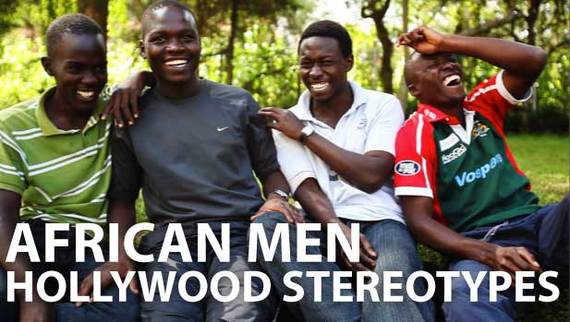
Mama Hope launched “African Men. Hollywood Stereotypes” in 2012 with the goal of starting a movement that would shift the perception about Africa. We were tired of seeing the stereotypes: helpless children sifting through garbage with distended bellies and flies in their eyes or bloodthirsty warlords toting AK-47s, and not much in between. We saw how these stereotypes hurt everyone. They hurt the African people whose lives were misrepresented and vastly different cultures were oversimplified. They hurt the organizations who used these stereotypes in commercials and campaigns to raise money, then invested those funds into projects that failed because they didn’t listen to the communities they were trying to help. They hurt the westerners who consumed this content, and believed that Africans were simultaneously too poor and sick to help themselves and too violent and animalistic to help each other. Doing development work, we hear all the time from friends and potential supporters how horrible the situation is in Africa, how it would be great if we could help, but “it’s just too hopeless.” But we do not believe this to be the truth. We see how diverse, complex and capable the communities we partner with truly are. We know women, men and children who have grown stronger despite immense challenges and emerged from the other side with increased dedication to changing the world around them — and they make up just a tiny portion of the entire continent.
At the time, we were hoping that the video would go viral and encourage others to spread the message that we have a responsibility to bring an end to negative stereotypes about Africa and Africans. In 2012 this message was before it’s time.Then, our audience was mainly people from the West who had more technical access to the video. In 2015, things have changed.
Now, people from all over the world, especially Africa, are on social media.There are more voices adding their thoughts and opinions to the online conversation about development and poverty — and these voices are increasingly those of the “poor” themselves. It is easier than ever to communicate across geographical distance, culture or income level. Our audience is more diverse than ever, and the voices who demand content like ours are only getting louder.
When people from Africa see this video, it’s not just a funny video about African men.It’s a video telling a refreshingly different story, a human story. It’s a video that shines a light on the stereotypes that dominate the media, and lets the personalities of these men take the stage. It doesn’t matter where you are from — everyone can identify with these young men. No matter your culture, language or religion, you can see in them a brother, son, nephew or student. The fact that this video has gone viral 3 years after it’s creation — with over 7.7 million new views in under 2 weeks — tells us that now people are hungry for this change. They are sick of being told about how other people are different, are dying, are starving and vicious. They want to be shown how we are the same. How we all laugh, love and play jokes. How we are all connected, and the good in ourselves is reflected in one other.
At Mama Hope our goal is to strengthen connection, and one of the best ways we’ve found to do it is through our Stop the Pity campaign. We strive to be a conduit between the people we know and love at home with the people we know and love across Africa and around the world. We know that extreme poverty is very real, and we work with our partners to address their most pressing needs every day — but the conversation should not end there. Our work is not a one-way street in which aid is funneled to the poor. It’s a conversation between equals who know that we are, and always will be, better together.


Be the first to comment